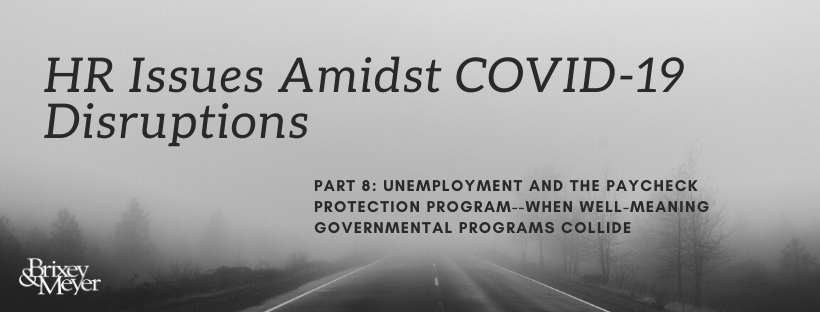HR Issues Amidst COVID-19 Disruptions PART 8: Unemployment & The PPP - When Well-Meaning Governmental Programs Collide
.png?width=820&name=HR%20and%20COVID-19%20(7).png)
Let’s look at some simple math. Bob, an hourly employee, averaged 40 hours per week making $15 per hour. At the end of each week, his gross income was $600. Now, due to a furlough, Bob is receiving unemployment benefits. According to the Ohio Department of Jobs and Family Services, Bob will bring home a weekly unemployment benefit of $300. Common assumption would be that he would begin hunting for a new job. Not so fast. With passage of the Coronavirus Aid, Relief, and Economic Stability Act (CARES), the federal government expanded each States’ ability to provide unemployment insurance for many workers. The expansion places an extra $600 per week into the pockets of each eligible worker. Bob is now bringing home $900 per week.
At the same time, Bob’s employer secured what is known as the Paycheck Protection Program Loan. The primary purpose of this loan is to provide an incentive for small businesses to keep their workers on their payroll. Under the terms of this loan, if an employer keeps its employees on the payroll for eight weeks and the money is used for payroll, rent, mortgaged interest, or utilities, the loan is forgiven. That is a sweet deal!
Company X needs to keep Bob on its payroll to capture loan forgiveness. However, why would Bob, who is making significantly more money on unemployment, come back? Both governmental programs seek to support employees; however, their outcomes collided.
This is a problem many employers face today. When the pandemic started, layoffs and furloughs became common tools solving staffing issues. With unemployment benefits providing needed economic relief, employers saw this as a good option. Along came the Paycheck Protection Program Loan. With rich incentives, employers ran to their banks. Securing the loan was the first step in getting stability back into their companies. One problem remained. Some employees, who made more on unemployment, said they did not want to return.
Two government programs aiming to strengthen the economy collided. In response, unemployment agencies, such as Ohio’s Department of Jobs and Family Services, set up fraud reporting websites. In addition, the Small Business Administration (SBA), in consultation with the United States Treasury Department provided guidance to address borrower and lender questions. Question 40 provides guidance on this issue (https://home.treasury.gov/system/files/136/Paycheck-Protection-Program-Frequently-Asked-Questions.pdf).
Question: Will a borrower’s PPP loan forgiveness amount (pursuant to section 1106 of the CARES Act and SBA’s implementing rules and guidance) be reduced if the borrower laid off an employee, offered to rehire the same employee, but the employee declined the offer?
Answer: No. As an exercise of the Administrator’s and the Secretary’s authority under Section 1106(d)(6) of the CARES Act to prescribe regulations granting de minimis exemptions from the Act’s limits on loan forgiveness, SBA and Treasury intend to issue an interim final rule excluding laid-off employees whom the borrower offered to rehire (for the same salary/wages and same number of hours) from the CARES Act’s loan forgiveness reduction calculation. The interim final rule will specify that, to qualify for this exception, the borrower must have made a good faith, written offer of rehire, and the employee’s rejection of that offer must be documented by the borrower. Employees and employers should be aware that employees who reject offers of re-employment may forfeit eligibility for continued unemployment compensation.
Based upon this information, if an employer makes a “good faith” effort, in writing, loan forgiveness will not be reduced. In addition, former employees remaining on unemployment may forfeit their eligibility.
Unemployment plays an important role in keeping our economy healthy. Yes, some people abuse it. Yes, some people will continue to receive it even when offered re-employment. However, employers can still benefit from PPP loan forgiveness as they strive to put people back to work.
This series explores HR-related areas needing consideration as leaders deal with the current COVID-19 disruption. Check out parts 1-7:
-
HR Issues Amidst COVID-19 Disruptions PART 2: Support Your Employees With Clear Communications
-
HR Issues Amidst COVID-19 Disruptions PART 3: Staffing and Business Continuity
-
HR Issues Amidst COVID-19 Disruptions PART 4: Understanding The Families First Coronavirus Response Act (FFCRA)
-
HR Issues Amidst COVID-19 Disruptions PART 5: Administering The Families First Coronavirus Response Act (FFCRA)
-
HR Issues Amidst COVID-19 Disruptions PART 6: Managing Various COVID-19 Employee Leave Law Scenarios
-
HR Issues Amidst COVID-19 Disruptions PART 7: Winning The Psychological Battle Of Returning To Work
Hang in there! This will pass! We are in this together!
Need assistance with addressing short and long term HR needs for your business? Contact me at steve.black@brixeyandmeyer.com, and we will address them proactively.
Disclaimer: This blog is not legal advice, but merely informed opinion or general information meant for no particular purpose. Issues addressed in this blog often implicate federal, state, and local labor and employment laws. This blog is not intended as a substitute for legal advice. Readers should consult labor and employment counsel to determine whether their particular policies, procedures, decisions, or courses of action comply with such laws.

